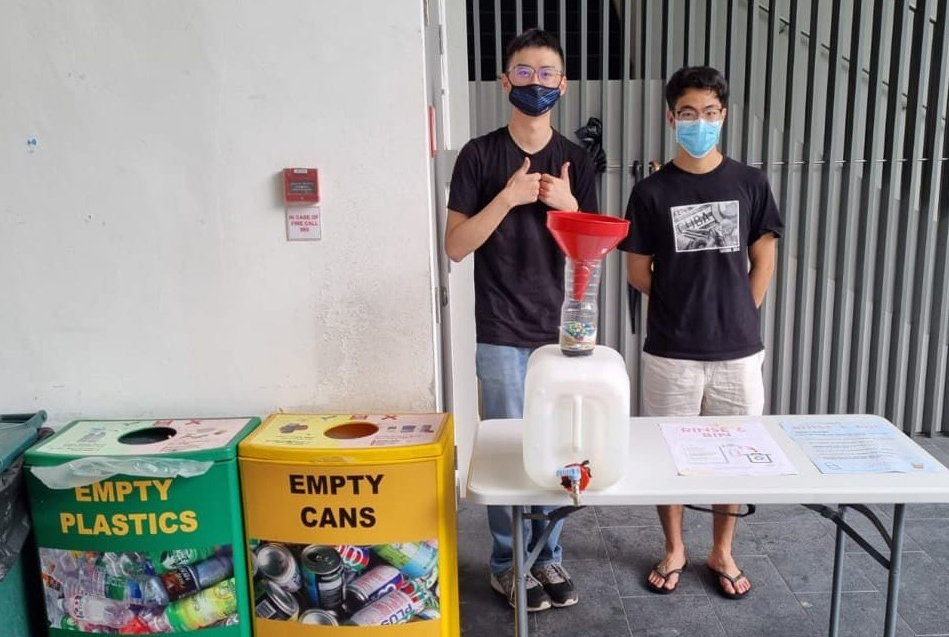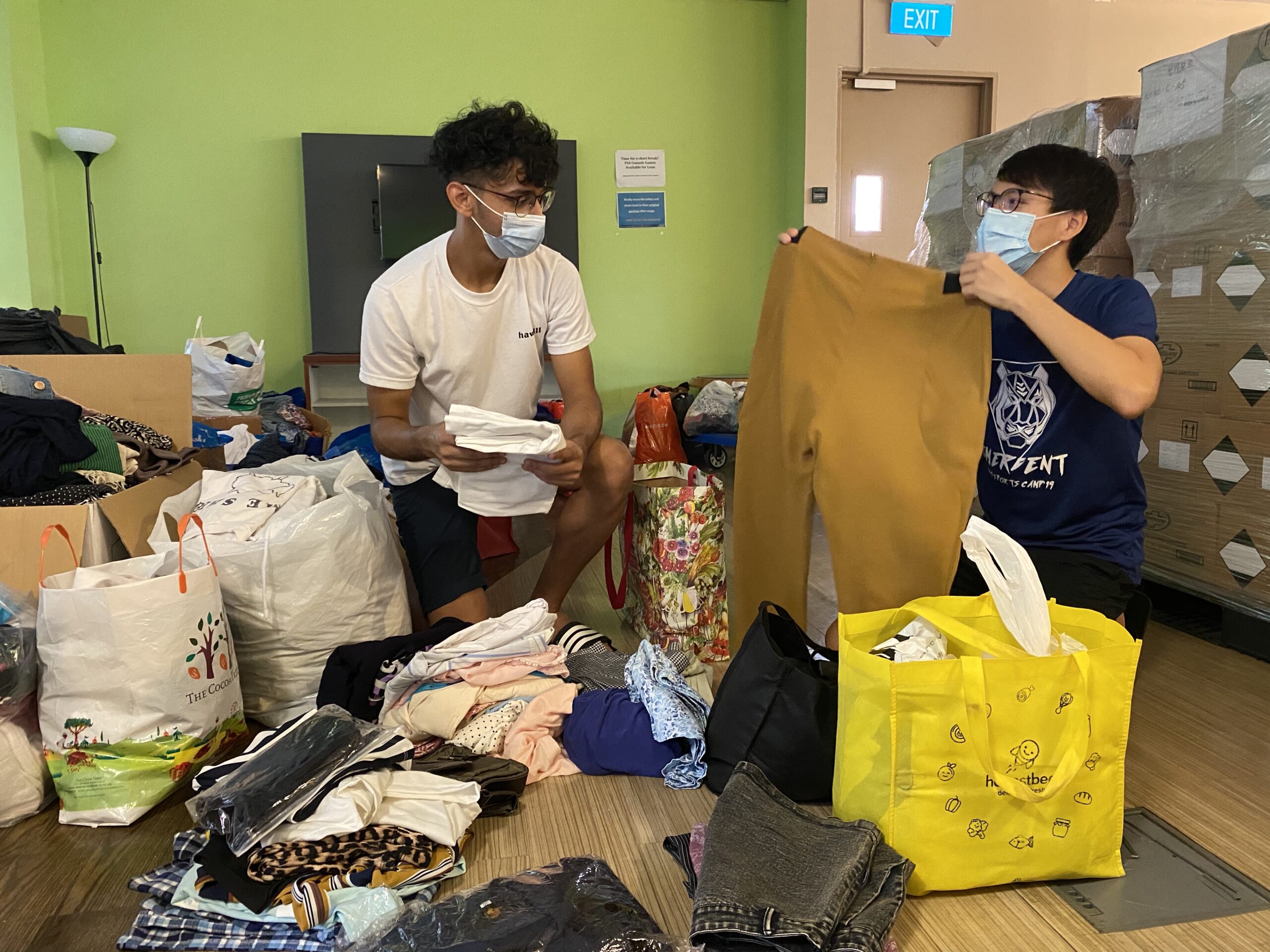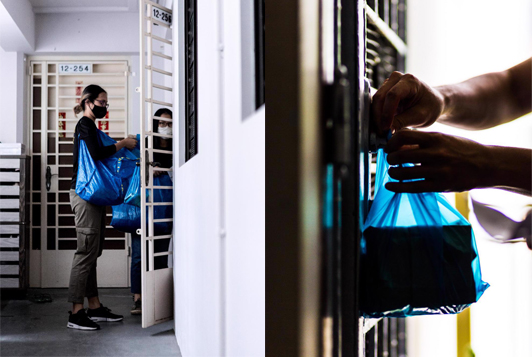Since 2015, Ridge View Residential College (RVRC) has been organising their annual Action for Sustainability Symposium to showcase student projects from the module GEQ1917 “Understanding and Critiquing Sustainability”. Popular topics range from energy and climate to ecosystem degradation, responsible consumption, to built environment and green infrastructure. Educators, industry partners, and government agencies are invited as guests to provide their valuable input on student presentations.
This year, the symposium was held 5 to 9 April 2021, on RVRC grounds. As a first year student, this module and symposium has opened my eyes to the great possibilities to contribute towards a greener world. I believe these three brilliant projects can change your habits on/off campus and impact the world!
1. Crick-Ate
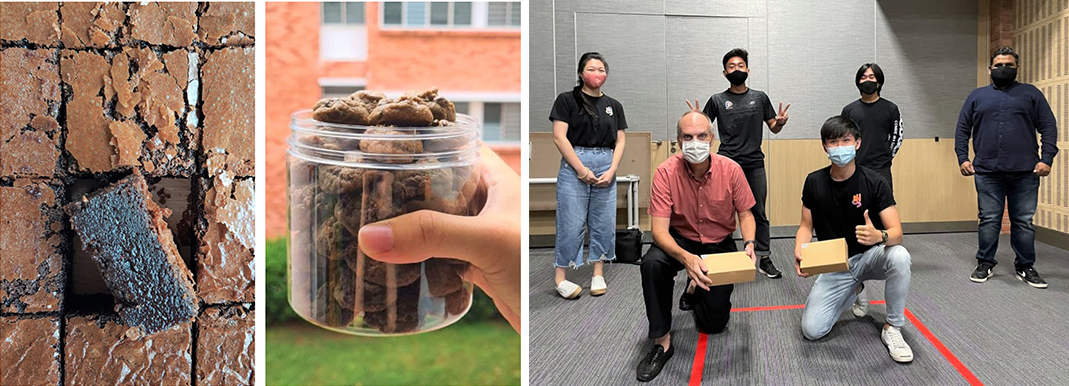
Photo right: Team Crick-Ate with RVRC Hall Master Greg and Mr Raavee Shanker from Asia Insect Fam Solutions. Top row (left to right): Lee Jiahui, Alphonsus Teow, Nan Song, Mr Raavee Shanker. Bottom row (left to right): Master Greg, Rickson Ooi.
Given the rise in global meat consumption coupled with traditional livestock consuming large amounts of water, land space and producing copious amounts of greenhouse gases, Team Crick-Ate introduced an alternative protein source. It is not only nutritious, but also sustainable to aid in the situation - crickets! Since consuming crickets is not widely accepted due to a negative social stigma attached to eating insects, the team aims to increase the awareness and willingness in youth towards the acceptance of entomophagy. To do this, hands on workshops were conducted, enabling participants to try out cricket flour products such as delicious brownies and cookies. Among the participants, there was an astonishing 93.2% increase in willingness to consume cricket flour-based foods making it a growing popular ingredient to use.
2: Re:Package
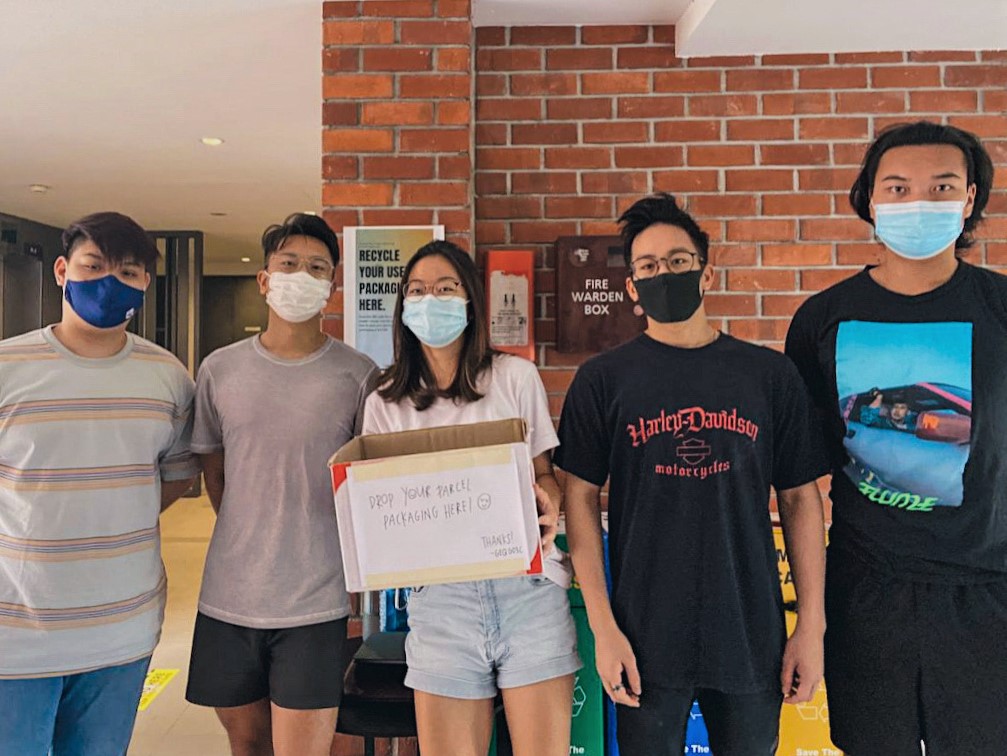
Globally, the e-commerce market has been growing, resulting in increased use of plastic packaging such as poly-mailers. In Singapore, these poly-mailers cannot be recycled, causing them to end up in the waste-stream. Furthermore, COVID-19 has enhanced e-commerce dependence in both local and international students. Team Re:Package hence ‘closes the loop’ by collecting used poly-mailers in RVRC and passing them on to Package Pals, an external packaging redistributor, to extend the lifespan of poly-mailers through reuse. Over a four-week implementation period, 87 poly-mailers were collected, equating to more than 50% of the RVRC residents who had e-commerce packages delivered during this period.
Natalie Ong, member of Re:Package said:
“Every small action counts. It might be hard to see the impact that you’re making but every little action is a step towards a greener and more sustainable world.”
3. Rinse&Bin
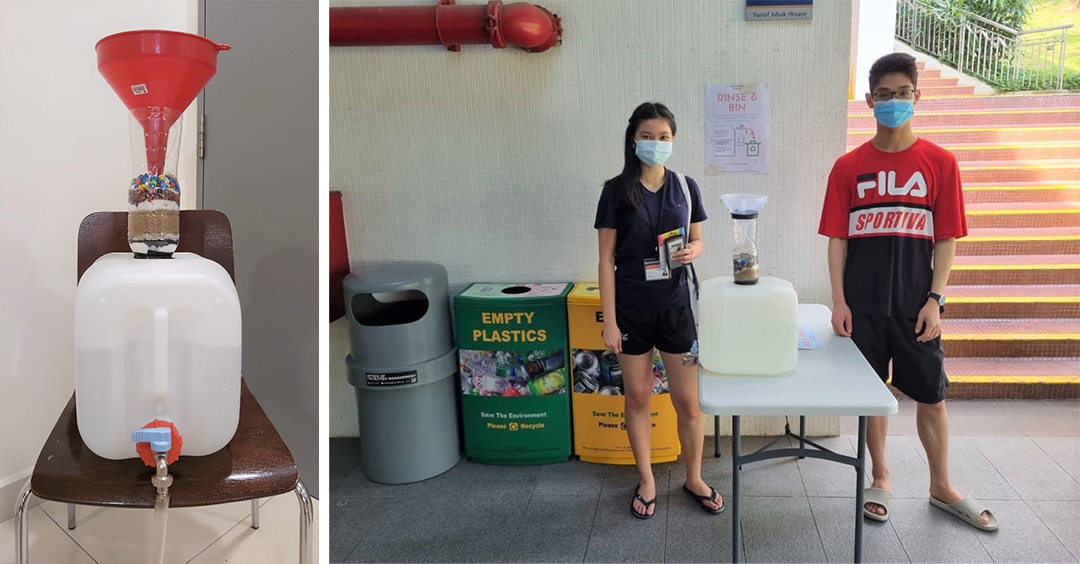
Photo Right: Team Rinse&Bin members Felicia Ong Sing Yi (left) and Shen Zhuowen (right) with their rinsing device at YIH, Level 2.
Did you know that more than 50% of plastics in Singapore cannot be recycled due to contamination? This problem exists within NUS as well, where most students and staff surveyed (n=75) indicated that they do not rinse their plastics before recycling. Team Rinse&Bin hence aims to raise awareness on the importance of rinsing plastic bottles/cups before recycling and increase convenience of rinsing points when recycling. Taking inspiration from their seniors’ project (AY1920 G11C “Wash To Recycle!”), the team designed a rinsing device from scratch and placed them near the recycling bins located at Yusof Ishak House (YIH) and Science Frontier Canteen. An exceptional 70% of users were “likely” or “extremely likely” to rinse plastic bottles/cups with the device, and contamination rates were reduced by 46%! Rinse&Bin is immensely grateful for this opportunity to take a practical approach to such sustainability issues, displaying their care for our environment while motivating others to do the same.
Go ahead and try baking with cricket flour, save your used poly-mailers and drop them off at RVRC or use the rinsing devices available on campus. Changing your daily habits with these simple actions can contribute to a greener world.
Can’t get enough? Check out other remarkable projects showcased in the Action for Sustainability Symposium.
Share:
Contributor
Felicia Ong Sing Yi, Faculty of Science, Year 1


